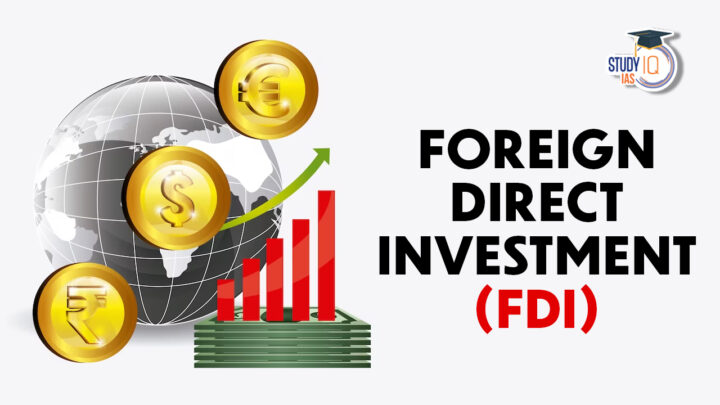Nigeria’s foreign direct investment (FDI) inflows have plunged sharply, falling by 70% within just three months, raising concerns over investor confidence and the nation’s economic climate. The steep decline, as reported by the National Bureau of Statistics (NBS), underscores the urgent need for policy reforms and improved business conditions to attract and retain foreign capital.
According to the NBS capital importation report for the second quarter of 2025, total FDI stood at a fraction of the figure recorded in the previous quarter, reflecting a significant withdrawal of interest from international investors. The downturn cuts across key sectors that traditionally attract foreign participation, including manufacturing, oil and gas, telecommunications, and financial services.

Analysts attribute the slump to a combination of factors, including exchange rate volatility, high inflation, policy inconsistency, and security challenges in some regions. These have heightened the perceived risk of doing business in Nigeria, prompting investors to adopt a cautious stance or divert capital to more stable African markets.
The report also indicated that portfolio investments and other forms of capital inflows have been volatile, with foreign portfolio investment seeing only marginal gains due to speculative short-term inflows rather than long-term commitments. The trend suggests that Nigeria’s attractiveness to global investors has been dented by both structural and macroeconomic challenges.
Dr. Adebayo Oladele, an economist and investment analyst, explained that the naira’s persistent instability has been a major deterrent, as investors fear currency losses could erode returns. He added that delays in repatriating profits and inconsistent regulatory directives further complicate the investment landscape.
The oil and gas sector—historically Nigeria’s top FDI magnet—has been particularly affected. Unresolved issues around fiscal terms, licensing, and crude theft have discouraged multinational oil companies from committing new resources. In manufacturing, high production costs driven by energy shortages and import dependency have diminished Nigeria’s competitiveness.
Despite these challenges, the federal government maintains that it is committed to reversing the downward trend. The Ministry of Industry, Trade, and Investment has pointed to ongoing reforms such as ease-of-doing-business initiatives, infrastructure development, and tax incentives for priority sectors. Officials also cite recent bilateral engagements with foreign governments and global corporations aimed at securing new investment pledges.
Presidential adviser on economic affairs, Tope Fasua, stated that while the FDI figures are concerning, they reflect a global slowdown in cross-border investments due to geopolitical tensions, high interest rates in developed economies, and shifting supply chains. He stressed that Nigeria’s market fundamentals—including its large population, resource base, and strategic location—remain strong selling points for long-term investors.
However, industry stakeholders argue that without addressing fundamental domestic issues such as insecurity, multiple taxation, and regulatory unpredictability, external factors will continue to serve only as partial explanations for the investment decline. They recommend targeted sectoral reforms, transparent contract enforcement, and stronger incentives for industries with export potential.
Some experts suggest that Nigeria should focus more on retaining existing investors through policy stability and operational support rather than solely chasing new deals. Retention, they argue, not only ensures steady capital inflows but also strengthens the country’s reputation as a dependable investment destination.
The sharp fall in FDI has potential ripple effects for job creation, technology transfer, and economic diversification—key areas in Nigeria’s development agenda. Reduced foreign capital limits the resources available for expanding industries, upgrading infrastructure, and building skills, potentially slowing down GDP growth.
In the short term, economists advise that government agencies work more closely with private sector representatives to remove bottlenecks and create an enabling environment for both local and foreign investors. Improving infrastructure, stabilising the exchange rate, and ensuring transparent governance are seen as critical steps to restoring investor trust.
If successful, such measures could not only reverse the recent FDI decline but also position Nigeria to benefit from anticipated global shifts in investment flows as companies seek new growth frontiers in emerging markets.
For now, the 70% crash serves as a stark reminder of the delicate balance between attracting capital and sustaining investor confidence in a challenging economic landscape. Without decisive action, Nigeria risks losing its competitive edge to neighbouring economies actively courting the same pool of global investors.
Support InfoStride News' Credible Journalism: Only credible journalism can guarantee a fair, accountable and transparent society, including democracy and government. It involves a lot of efforts and money. We need your support. Click here to Donate
